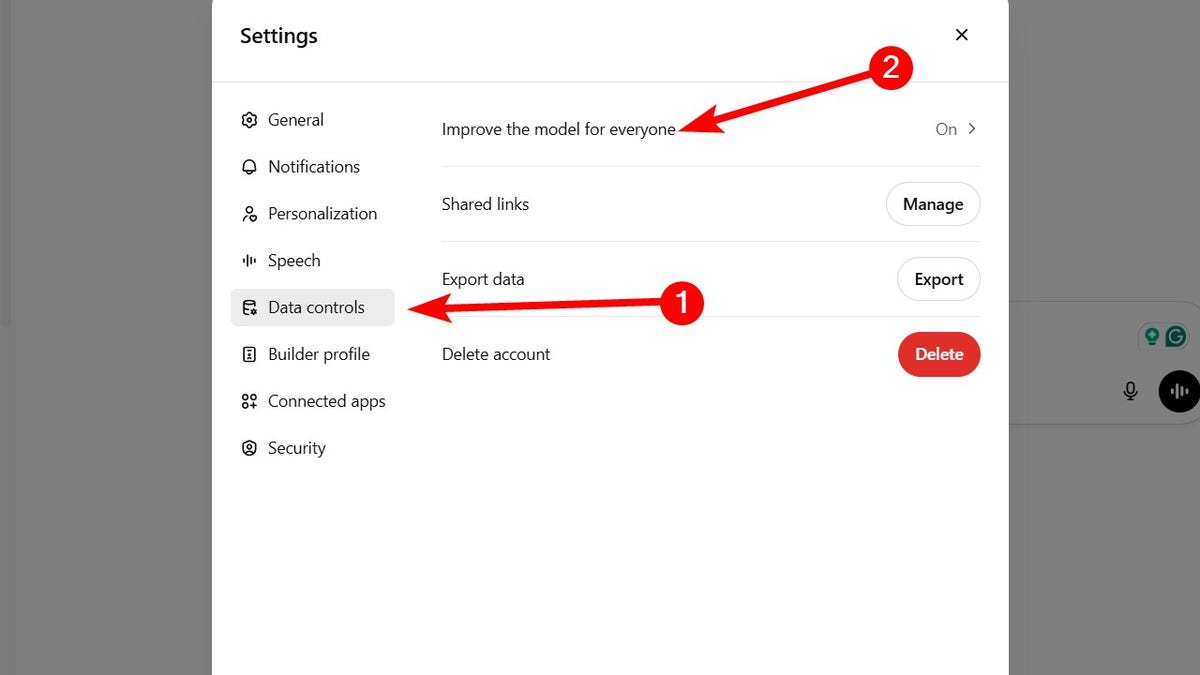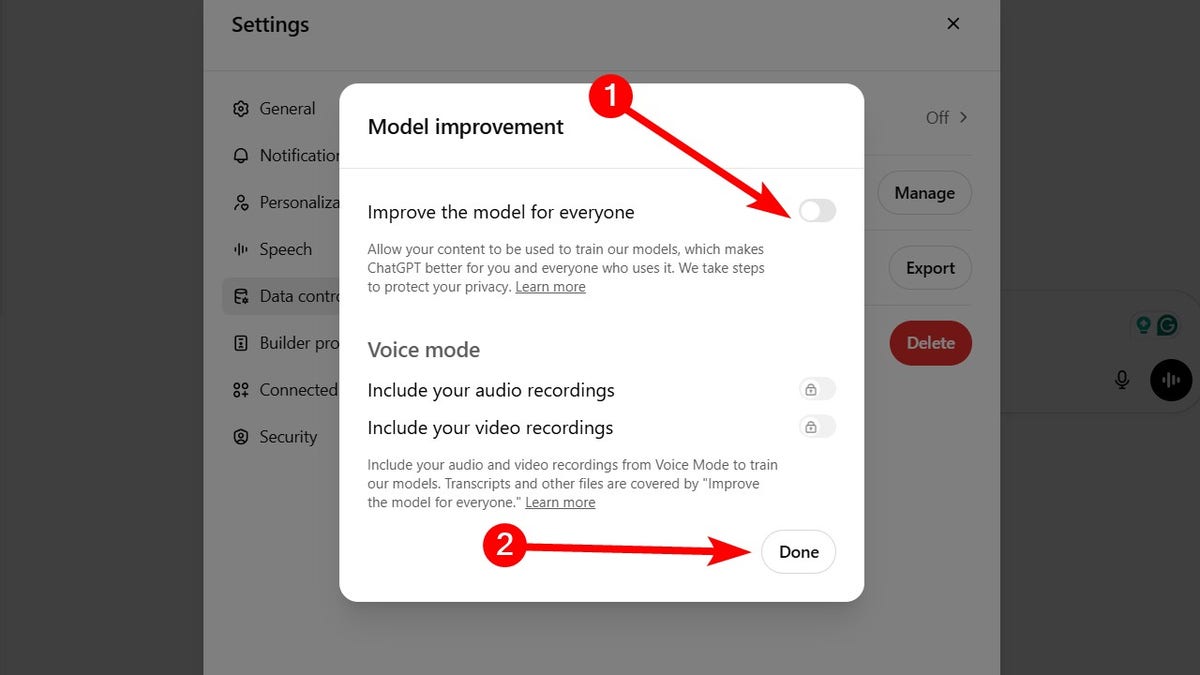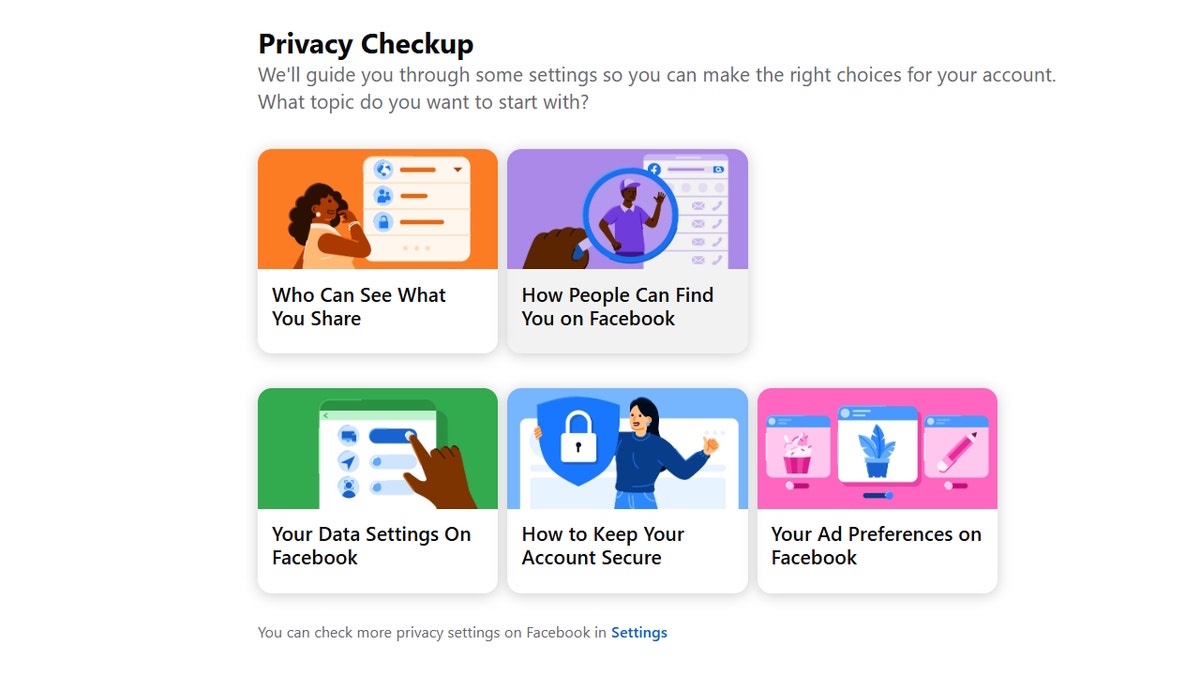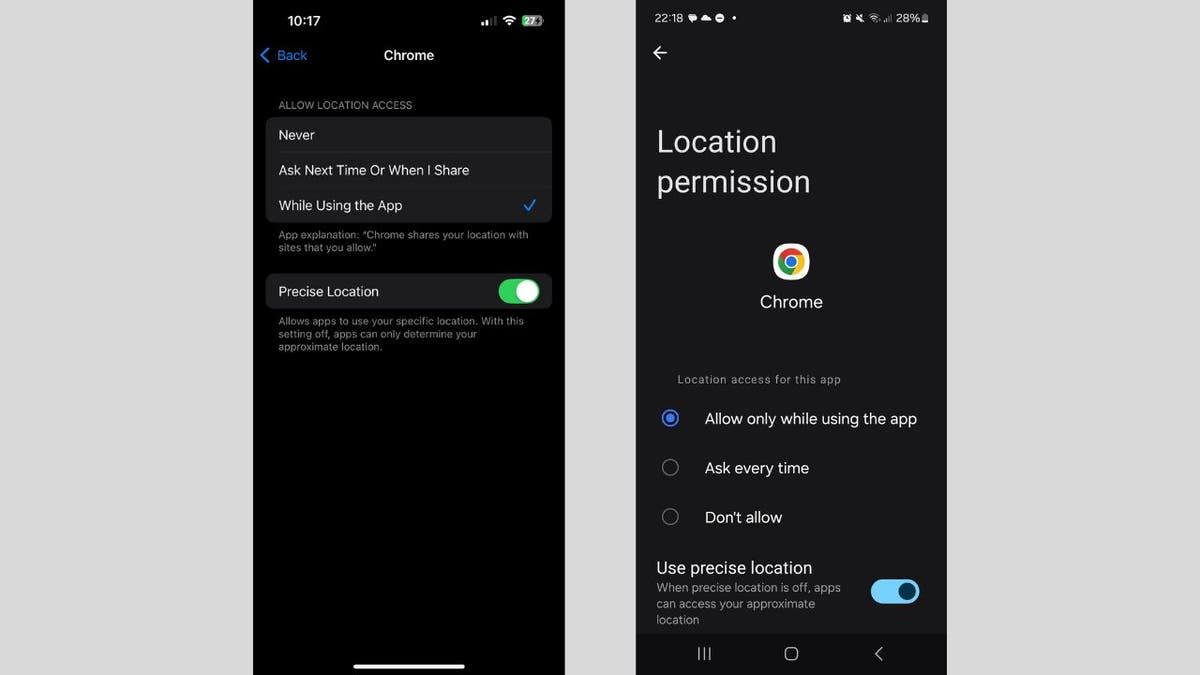

Privacy is getting harder to protect in a world where everything is connected.
Whether you're chatting with an AI, checking your email or using your smartphone, your personal information is constantly being collected, tracked and sometimes even sold.
But protecting your privacy in 2025 doesn't have to be overwhelming. With a few practical steps, you can take back control of your data and make your online life safer. This guide walks you through 11 easy ways to get started.
Sign up for my FREE CyberGuy Report
Get my best tech tips, urgent security alerts and exclusive deals delivered straight to your inbox. Plus, you’ll get instant access to my Ultimate Scam Survival Guide free when you join.

Scrabble pieces form the word "SCAM." (Kurt "CyberGuy" Knutsson)
AI chatbots like ChatGPT are useful, but they're not private journals. The platform owners may have privacy policies and use the latest security measures, but that doesn't mean you should let your guard down. When using these tools, refrain from sharing any personal information, such as your name, address, birthdate, passwords, financial details or sensitive conversations. Remember that AI systems store and process your inputs, and despite security promises, data breaches can occur.
SCAMMERS CAN EXPLOIT YOUR DATA FROM JUST 1 CHATGPT SEARCH
Tip: Treat all online forms of AI interaction like public forums. Keep your examples generic and use caution with anything that could identify you.
If you're going to input your personal information while using these AI tools, ensure there is an option to prevent them from sharing it. On ChatGPT, for instance, do the following:

Steps to prevent ChatGPT from sharing your personal information (Kurt "CyberGuy" Knutsson)

Steps to prevent ChatGPT from sharing your personal information (Kurt "CyberGuy" Knutsson)
Why it matters: AI tools may seem personal, but they’re not secure vaults. Guarding what you share helps prevent misuse, identity theft or data leaks from breaches.
CLEAN UP YOUR PHONE: SPEED, STORAGE AND PRIVACY BOOST IN MINUTES
Your email is often the key to your online identity and a common target for spam. By creating disposable email aliases that forward messages to your main inbox, you can keep your real address hidden from websites and services. These unique aliases act as shields, so if one starts getting spammed or is involved in a data breach, you can simply deactivate it without affecting your main email account.
My top recommendation to avoid being inundated with spam emails is to use an alias email address. An alias email address is an additional email address that can be used to receive emails in the same mailbox as the primary email address. It acts as a forwarding address, directing emails to the primary email address.
In addition to creating throwaway email accounts for online sign-ups and other circumstances where you would not want to disclose your primary email address, alias email addresses are helpful for handling and organizing incoming communications.
Sometimes, it's best to create various email aliases so that you don't have to worry about getting tons of spam mail or having your information taken in a data breach. An alias email address is a great way for you to stop receiving constant spam mail by simply deleting the email alias address. See my review of the best secure and private email services here.
Why it matters: You stay anonymous, avoid data leaks and never have to change your main email address again.
BEST ANTIVIRUS FOR MAC, PC, IPHONES AND ANDROIDS – CYBERGUY PICKS
Meta frequently updates its privacy settings, so it's best to check regularly to see how you can improve your privacy. Use Facebook's Privacy Checkup tool to review and adjust crucial settings, including post visibility, app permissions, search visibility and friend-request settings. This comprehensive tool helps ensure your profile remains as private as you want it to be. You can find the tool by following these steps:
Once you open the Privacy Checkup, you'll be guided through several key areas to customize your privacy preferences and better control your information.
Quick tip: Set a reminder to run a privacy checkup every few months, especially after major Facebook updates. This way, you’ll always be in control of your information.
Why it matters: Social media platforms thrive on your personal data. Adjusting your settings regularly puts you back in control of what others and Facebook can see and use.

Facebook’s privacy checkup (Kurt "CyberGuy" Knutsson)
HOW TO PROTECT YOUR ONLINE PRIVACY AND SECURITY ON YOUR NEXT CRUISE VACATION
Your name, phone number and home address may already be listed on people-search sites like Spokeo, Whitepages and BeenVerified. These data brokers collect and sell your personal information without you even knowing it. Fortunately, personal data removal services are available to protect your privacy. They automatically send legal removal requests to hundreds of data brokers. They also go above and beyond by continuously monitoring them in case these third parties happen to get your information again.
While no service can guarantee the complete removal of your data from the internet, a data removal service is really a smart choice. They aren’t cheap and neither is your privacy. These services do all the work for you by actively monitoring and systematically erasing your personal information from hundreds of websites. It’s what gives me peace of mind and has proven to be the most effective way to erase your personal data from the internet. By limiting the information available, you reduce the risk of scammers cross-referencing data from breaches with information they might find on the dark web, making it harder for them to target you. Check out my top picks for data removal services here.
Get a free scan to find out if your personal information is already out on the web.
Why it matters: The less personal information available about you online, the harder it is for scammers and identity thieves to target you and the more peace of mind you'll have.
10 SIMPLE STEPS TO IMPROVE YOUR SMARTPHONE’S SECURITY AND PRIVACY
If you're still using standard texting apps or platforms like Facebook Messenger, it's time to upgrade to a more secure option. Apps like Signal and Session offer end-to-end encryption, no ads and no metadata tracking, meaning they can't see who you're talking to or what you're saying. Both apps support disappearing messages, giving you more control over how long your conversations stick around.
Why it matters: Your messages stay private and can't be accessed by hackers, advertisers or the app developers themselves.
Google collects a massive amount of data from your searches, YouTube views, Gmail activity and location history, all of which fuels targeted advertising. You can stop much of this tracking by turning off Ad Personalization and deleting your activity history. Here's what to do:
Why it matters: Cutting down on ad tracking reduces how much of your online behavior is used to build a profile on you, often without your knowledge.
Apps don't need to know your every move. Disabling or limiting location tracking is one of the simplest ways to protect your physical privacy. Here's what to do:
iPhone:
For apps like Maps, toggle Precise Location off to prevent pinpoint tracking.
To disable location tracking entirely, toggle Location Services off at the top of the Location Services page (this will stop all apps from using your location).
Android:
Settings may vary depending on your Android phone’s manufacturer.
For apps that have location access, you can also turn Precise location on or off if you want to limit accuracy. Repeat for each app you want to manage.
Tip: If you want to stop all apps from accessing your location, you can turn off Location at the top of the Location settings page.
Why it matters: Prevents apps, advertisers and even your OS from building a detailed map of your daily routines.

Steps to turn off location tracking on your smartphone (Kurt "CyberGuy" Knutsson)
WHAT IS ARTIFICIAL INTELLIGENCE (AI)?
Most routers ship with default admin usernames and passwords like "admin" or "1234," and these are publicly available online. Hackers know this and often scan networks looking for unprotected routers. Here's what to do:
Why it matters: Prevents intruders from hijacking your home network and spying on your devices.
WPA3 is the newest wireless encryption protocol and offers much stronger protection than WPA2. If your router supports WPA3, enabling it is a no-brainer. How to check:
Why it matters: Stronger encryption means hackers can't easily intercept or crack your Wi-Fi traffic.
Your friends don't need access to your entire home network and neither do your smart lights and doorbells. Creating a guest network adds a safety barrier between your personal devices and less trustworthy ones. Steps to take:
Why it matters: Even if a smart device gets compromised, the attacker won't have access to your main network or sensitive devices.
Not all browsers treat your privacy equally. Switching to a browser designed for privacy like Brave, Firefox or DuckDuckGo's browser can drastically cut down on the amount of data collected about you while you browse. Also, use incognito/private mode for sensitive searches.
Why it matters: Reduces digital fingerprints and helps stop advertisers and data brokers from building a profile on you based on your browsing behavior.
SUBSCRIBE TO KURT’S YOUTUBE CHANNEL FOR QUICK VIDEO TIPS ON HOW TO WORK ALL OF YOUR TECH DEVICES
Staying private online isn't about being paranoid; it's about making smart, intentional choices. With the right tools and a few small changes, you can take back control of your data in 2025. Digital privacy is always changing, so it's a good idea to check your settings and habits every so often. The upside is that for every new privacy challenge, there's usually a way to push back and keep your information safe.
If you’d like a printable checklist or want this content turned into a shareable infographic, just let me know.
What privacy tools and methods do you use to protect your data online? Let us know by writing us at Cyberguy.com/Contact.
For more of my tech tips and security alerts, subscribe to my free CyberGuy Report Newsletter by heading to Cyberguy.com/Newsletter.
Ask Kurt a question or let us know what stories you'd like us to cover.
Follow Kurt on his social channels:
Answers to the most-asked CyberGuy questions:
New from Kurt:
Copyright 2025 CyberGuy.com. All rights reserved.
